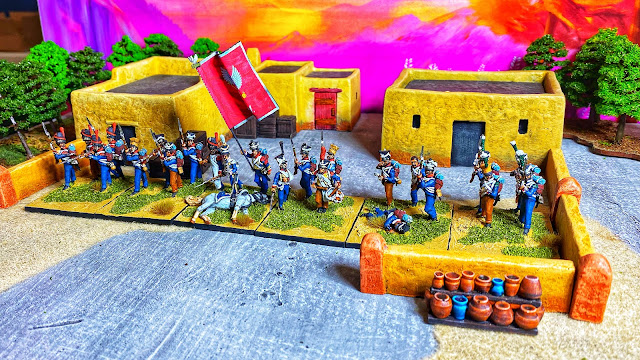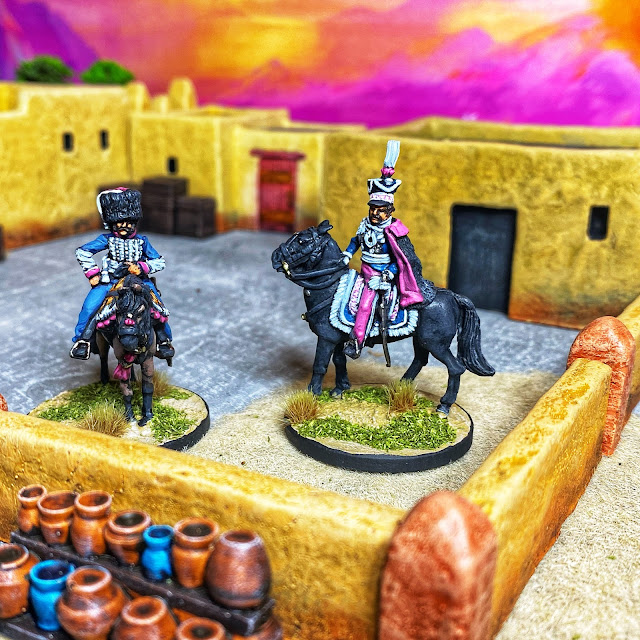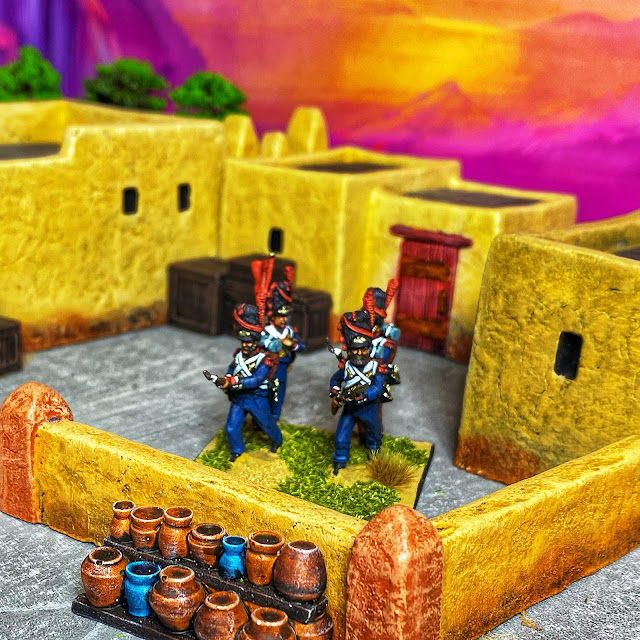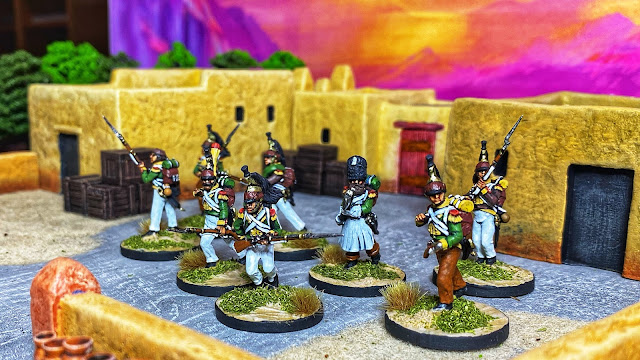The Polish Brigade: The 4th and 7th Regiments of the Duchy of Warsaw in the Peninsular War and Beyond
The soldiers of the Duchy of Warsaw were among Napoleon’s most loyal and determined allies, their ranks filled with veterans yearning for Poland’s rebirth. Though their contributions are often overshadowed by the exploits of French and other allied troops, the 4th and 7th Regiments of the Duchy of Warsaw played a significant role in the 5th Corps under Marshal Édouard Mortier during the brutal Peninsular War campaigns. Associated closely with General Jean-Baptiste Girard's 1st Division, these regiments endured the grueling conditions of Spain and left their mark on key battles and campaigns from 1809 to 1811. Their service would later continue on the frozen fields of Russia, further cementing their legacy.
The soldiers of the Duchy of Warsaw were among Napoleon’s most loyal and determined allies, their ranks filled with veterans yearning for Poland’s rebirth. Though their contributions are often overshadowed by the exploits of French and other allied troops, the 4th and 7th Regiments of the Duchy of Warsaw played a significant role in the 5th Corps under Marshal Édouard Mortier during the brutal Peninsular War campaigns. Associated closely with General Jean-Baptiste Girard's 1st Division, these regiments endured the grueling conditions of Spain and left their mark on key battles and campaigns from 1809 to 1811. Their service would later continue on the frozen fields of Russia, further cementing their legacy.
A Polish Presence in the 5th Corps
The 4th and 7th Polish
Regiments were dispatched to Spain in 1809 as part of Napoleon’s efforts
to bolster his forces in the Peninsula. Their assignment to Mortier’s
5th Corps reflected Napoleon's high regard for their discipline and
reliability in critical operations. Integrated into Girard’s 1st
Division, the Poles brought with them a fiery zeal to prove themselves
and restore Poland’s sovereignty.

The Battle of Ocaña, 1809
One of the first major engagements for the 4th and 7th Polish Regiments under Girard was the Battle of Ocaña in November 1809. As part of Mortier’s offensive to crush the Spanish Army of La Mancha, the Poles formed a critical component of the infantry assault. Fighting in tight coordination with French troops, they executed a series of bayonet charges that shattered the Spanish lines, demonstrating their effectiveness as shock troops.
Eyewitness accounts, particularly from French officers, praised the Poles’ relentless advance through artillery and musket fire. The regimental eagle of the 4th reportedly flew high over captured Spanish positions, symbolizing the steadfast determination of the Duchy of Warsaw forces.
The Winter Campaign into Andalusia, 1810
After Ocaña, the 5th Corps was tasked with a winter campaign into Andalusia, aimed at securing Seville and consolidating French control over southern Spain. The 4th and 7th Regiments endured freezing temperatures, muddy roads, and guerrilla ambushes during the grueling march. Their stoic resilience earned them respect among their French comrades.
Once in Seville, the Poles found themselves engaged in counter-guerrilla operations and occupation duties. Though these tasks were far from glorious, they were vital in maintaining the tenuous hold of the French Empire in the region. Stories of their interactions with local Spanish populations reveal a mix of mutual respect and suspicion, with the Poles sometimes seen as less harsh occupiers compared to their French counterparts.
The Battle of Albuera, 1811
By 1811, the Poles of Girard’s division were called upon to reinforce the French effort in the Battle of Albuera, one of the bloodiest engagements of the Peninsular War. During this fierce confrontation, the 4th and 7th Regiments held the right flank of Girard’s line, facing waves of Anglo-Portuguese and Spanish assaults.
The Poles’ steadfast defense was instrumental in preventing a complete rout of Girard’s division during the chaotic retreat. Despite heavy casualties, their actions allowed Mortier’s corps to regroup and avoid disaster. Albuera became a somber reminder of the cost of Napoleon’s ambitions, but it also solidified the reputation of the Duchy of Warsaw troops as steadfast and reliable allies.
The Retreat from Russia, 1812
After Girard's recall from Spain in late 1811, the 4th and 7th Polish Regiments were redeployed to the Eastern Front in preparation for Napoleon’s invasion of Russia finding themselves again uinder Girard's command. Following the catastrophic defeat of the Grande Armée during the retreat from Moscow, Girard and his Poles were tasked with a critical role in covering the retreat near the Berezina River in November 1812.
In this desperate and frigid battle, Girard’s leadership and the steadfastness of the Polish regiments were instrumental in holding off relentless Russian attacks. Positioned on the flanks of the collapsing French line, the 4th and 7th fought with their characteristic tenacity, buying precious time for the remnants of the Grande Armée to cross the makeshift bridges over the frozen Berezina.
Witnesses to this harrowing episode described the Poles forming disciplined squares against overwhelming odds, their courage standing in stark contrast to the chaos engulfing much of the army. Though severely diminished in numbers, their actions earned them both the respect of their allies and the gratitude of Napoleon himself.
The Legacy of the 4th and 7th Regiments
From the sun-scorched plains of Spain to the frozen rivers of Russia, the 4th and 7th Regiments of the Duchy of Warsaw exemplified the unwavering dedication of Polish troops in Napoleon’s service. Their role in Girard’s campaigns highlighted their adaptability and courage in the face of relentless hardship.
Whether standing firm at Albuera or shielding the shattered remnants of the Grande Armée at the Berezina, these regiments proved themselves indispensable to the Napoleonic cause. Their sacrifices remain a testament to their loyalty and determination, ensuring that their deeds will not be forgotten in the annals of European history.


















No comments:
Post a Comment